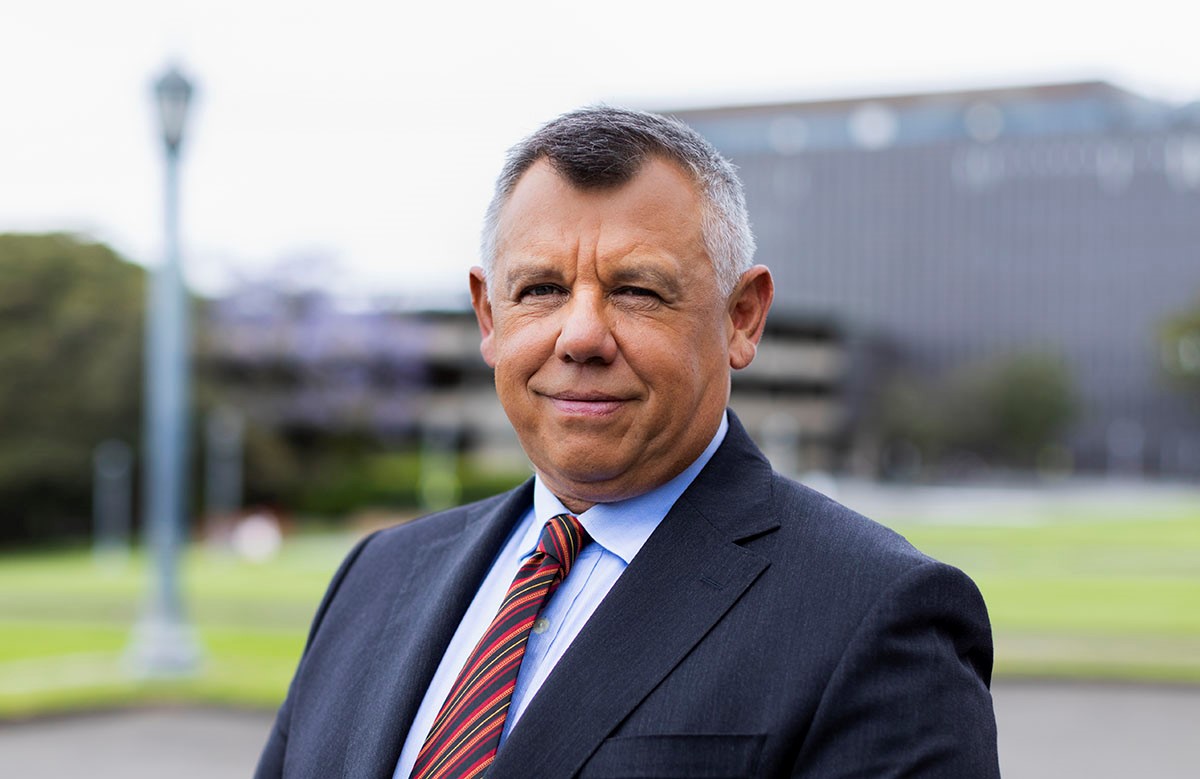“Racism infects all else”: McAvoy’s powerful words at Barak Wonga

Tony McAvoy SC, a Wirdi man and Australia’s first Indigenous Senior Council, gave the 2022 Barak Wonga Oration. Image: supplied.
In summary
- Tony McAvoy SC, a Wirdi man and Australia’s first Indigenous Senior Council, gave the 2022 Barak Wonga Oration
- Hosted by the Moondani Toombadool Centre, the annual address is named after Aboriginal leaders, William Barak and Simon Wonga, and aims to advance understanding of Aboriginal and Torres Strait Islander issues in Australia
- The theme of the address was race and redemption, discussing the continued impact of colonialism on the lives of First Nations people and non-Indigenous Australians
As Australia sits at the precipice of major constitutional change to enshrine an Indigenous Voice to Parliament, Australia’s first Indigenous Senior Counsel Tony McAvoy SC gave a clear-eyed view of race in Australia at Swinburne’s annual Barak Wonga Oration.
McAvoy, a Wirda man from Central Queensland, spoke on the theme of race and redemption, discussing the lasting impact that colonisation has on the lives of First Nations people and non-Indigenous Australians.
“The colonisation process has demanded that [non-Indigenous Australians] distrust us, think us inferior and dismiss our knowledge and culture. This was the British modus operandi…done in the name of British acquisition of our lands,” McAvoy said.
The role of unconscious bias
Hosted by the Moondani Toombadool Centre, the annual Barak Wonga Oration is named after Aboriginal leaders William Barak and Simon Wonga. Now in its seventh year, previous speakers have included Uncle Jack Charles, Dr Jackie Huggins AM, and Jill Gallagher AO.
In his address, McAvoy cited research suggesting that three out of four Australians have unrecognised racial biases, which may affect their decision making.
Borne out of a colonialist mindset, this unconscious bias is the biggest factor holding back meaningful action on improving the lives of Aboriginal and Torres Strait Islanders in McAvoy’s opinion.
“How can a First Nations person be assured fairness when it’s likely that three out of four lawyers have an unconscious bias. The jurors, the police officers…simply put, we cannot be assured a fair trial,” he said.
This bias plays out across society, whether it be fans at football games who jeer Aboriginal players more than non-Aboriginal players, or police officers in Perth who research showed were issuing speeding tickets to Indigenous drivers at three times the rate of non-Indigenous drivers, despite Indigenous drivers overall receiving less fines from automatic methods like speeding cameras.
“This one thing – racism – infects all else,” he said. “While Australians deep in their heart still feel that [Aboriginal and Torres Strait Islander people] are incapable, lesser, inferior or a people to be pitied or despised, our delivery from destitution and impoverishment is nearly impossible.”
Supporting a Voice to Parliament
Looking ahead to the proposed referendum on an Indigenous Voice to Parliament, McAvoy was hopeful, not only of the success of the vote but also the positive change that it might spark.
McAvoy said that he had gained “renewed strength” from the possibility that a unified political voice that can call out government and industry would help offer opportunities to engage in meaningful truth-telling and eventually a transition of some power through a treaty process.
“Within the next 12 months, Australians will go to the polls to demonstrate whether there are enough individual Australians who are prepared to share a modicum of power with us. I believe that there are,” he said.
“Maybe, just maybe, in the wake of a successful referendum, in that warm afterglow, with the strong hands of a First Nations voice, we can start to shake hands as equals in a society that is not scared of its past, that understands its own bias and that embraces [First Nations] sovereignty and the rights attached to that sovereignty.
“It’s here, in that place, that redemption may be possible”.
-
Media Enquiries
Related articles
-

- University
- Film and television
From Melbourne to the Tiwi Islands: LINGER brings Indigenous stories to the big screen
Indigenous students from Swinburne’s Advanced Diploma of Screen and Media lead a powerful collaborative film project exploring dispossession, identity, and resilience.
Thursday 05 June 2025 -

- University
National Reconciliation Week at Swinburne
Swinburne embraced the National Reconciliation Week 2025 theme, "Bridging Now to Next," building on our strong and rich history of celebrating, acknowledging and progressing reconciliation.
Friday 13 June 2025 -

- Education
- University
Indigenous Australian students explore STEM careers at MTC Future Aspirations Camp
The MTC Future Aspirations Camp gave Aboriginal and Torres Strait Islander students a hands-on STEM experience while exploring university life at Swinburne.
Thursday 20 February 2025 -

- Law
How Neane is using her degree to ensure her community will never be silenced
Swinburne alum Neane Carter was recently named Indigenous Lawyer of the Year at the Women in Law Awards. Neane is a senior solicitor, an activist and a multi-clan woman of the Yorta Yorta, Wamba Wamba, Djaara/Dja Dja Wurrung, Wotjobaluk and Wergaia Peoples of central and northern Victoria.
Thursday 09 January 2025 -

- University
Harnessing artificial intelligence to empower Indigenous peoples and cultures
Dr Terri Janke, a Wuthathi, Yadhaigana, and Meriam woman, delivered the 2024 Barak Wonga Oration, hosted by Swinburne's Moondani Toombadool Centre.
Thursday 19 December 2024

